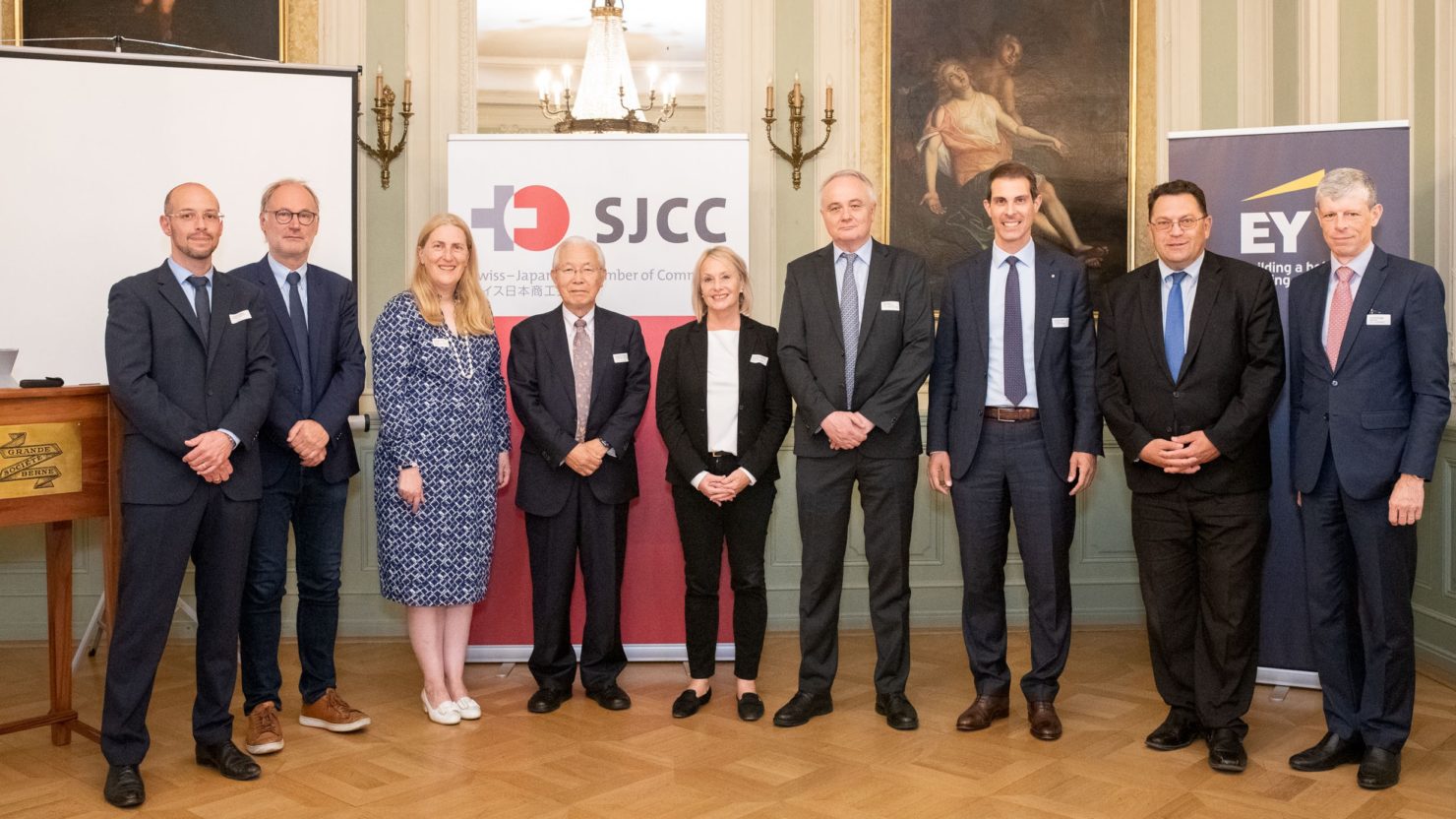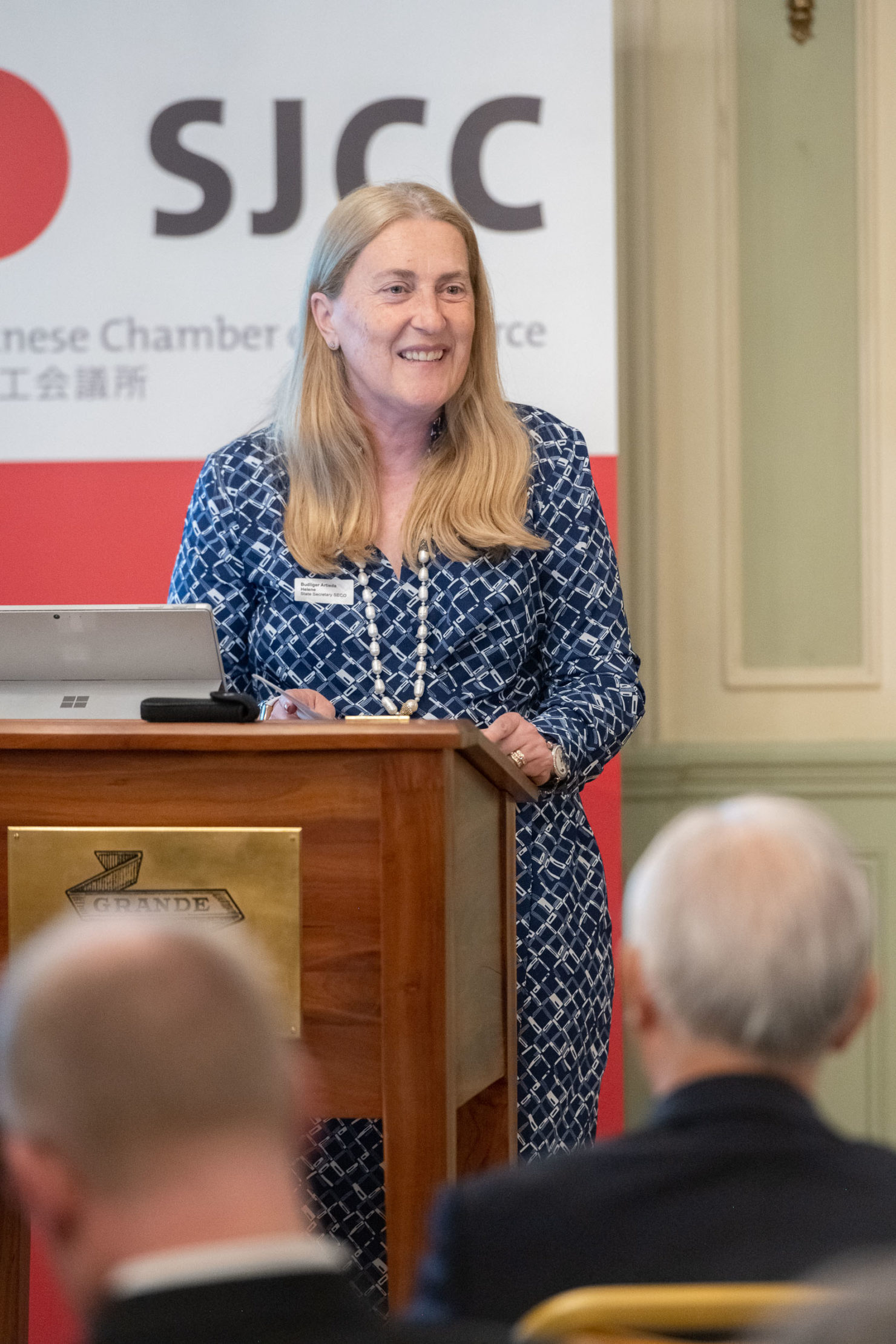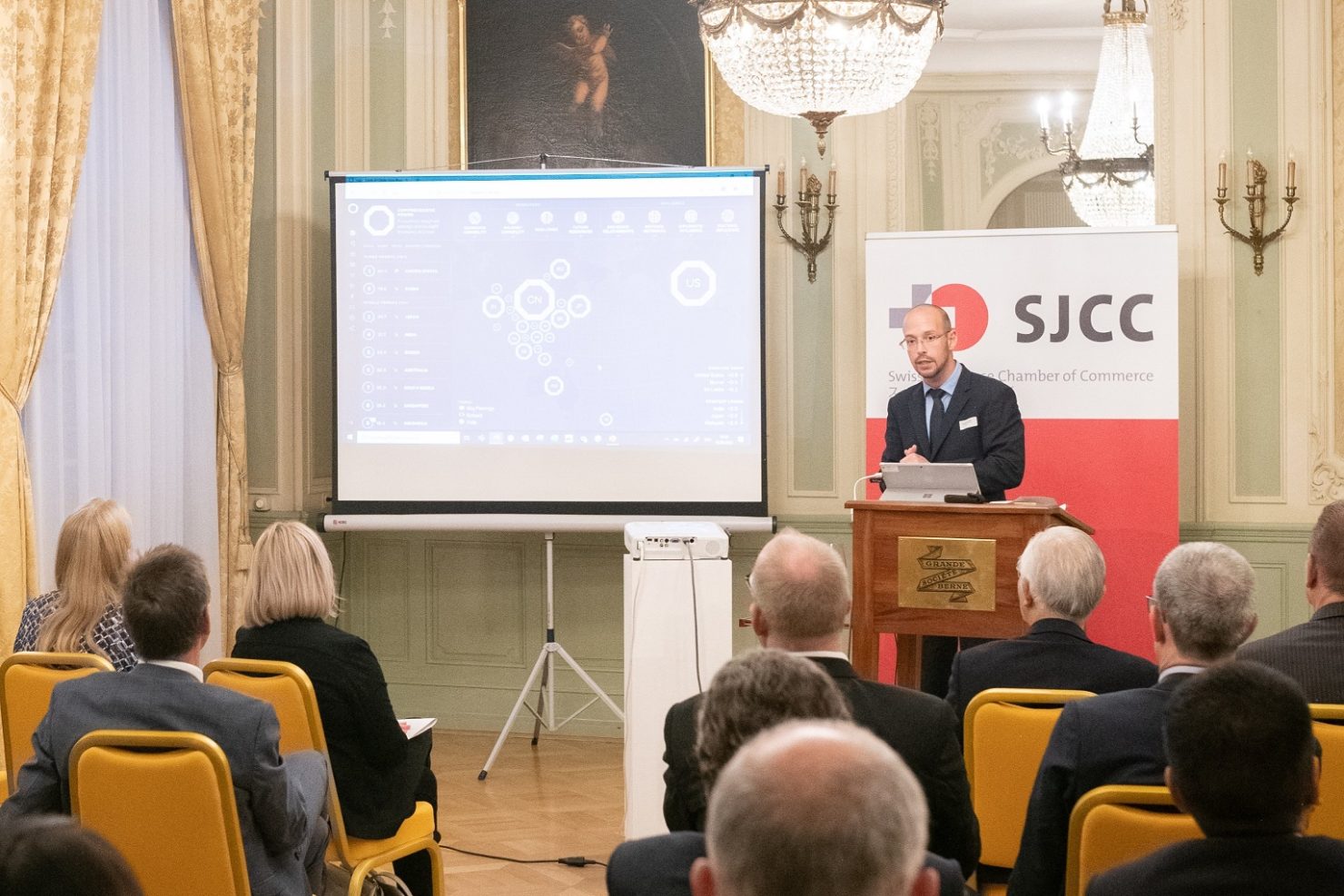Business, Parliamentarians, and Government Raise the Flag for Closer Swiss Japanese Ties
State Secretary Budliger Artieda spoke at the annual reception of the parliamentary friendship group Switzerland-Japan about the state of the bilateral relations and her priorities as SECO Director, which include the long overdue update of the bilateral free trade agreement.

At the occasion of the beginning of the autumn session of the Swiss parliament in Berne, the SJCC hosted its annual reception for the parliamentary friendship group Switzerland-Japan. The event started with welcome remarks by National Councillor Schneider-Schneiter, President of the parliamentary Group, and Martin Herb, President of the Swiss-Japanese Chamber of Commerce.
Need for More Proactive Location and FDI Promotion
The first input was dedicated to challenges for Europe, and Switzerland, to attract Foreign Direct Investment (FDI) from Japan. Mr. Markus T. Schweizer from EY Switzerland elaborated that Europe is currently the third most important destination for Japanese investments, behind North America and Asia, but the trend for Japanese FDI to Europe (without M&A, without extension of investments) is clearly decreasing.
Switzerland is well positioned when looking at the three most important factors that Japanese multinational companies indicate when choosing a country to invest in: Firstly, the availability of capital, secondly, policies regarding climate change and sustainability, and thirdly, the level of success in addressing the covid-19 pandemic. Despite the general strong attractiveness of Switzerland, there is very tough competition with Luxemburg, the Netherlands, UK and Belgium for Japanese FDIs. The presentation, which was based on EY’s latest Europe Attractiveness Survey concluded with a call for more proactive location and FDI promotion in Switzerland particularly regarding life sciences, technology manufacturing and mobility, where Switzerland has a lot to offer to Japanese investors, yet the untapped potential is significant given the reality where those investments mostly go to Germany, UK, France and the Netherlands.

Switzerland Not Giving Up the Aspiration to Update the Free Trade Agreement
Only one month in office, the speech by State Secretary Budliger Artieda, was her first appearance at a gathering of a parliamentary group. The new SECO Director highlighted the very good state of Swiss-Japanese economic relations. At the same time, she clearly stated that she considers the update of the bilateral Free Trade and Economic Partnership Agreement (FTEPA), in force since 2009, as one of her priorities. The detailed analysis of the utilisation of the existing agreement and how the practical benefits of the FTEPA can be further enhanced should serve as a steppingstone to achieve this goal.
The State Secretary further mentioned that she is very pleased that the Foreign Affairs Committee of the National Council (APK-N) will travel to Japan this November, and she named the new Swiss Consulate and Swissnex Office in Osaka as a great, recent example for Swiss efforts to intensify relations with Japan also in the field of innovation, research, and education.

The Geopolitical Situation in Asia-Pacific: Implications for Japan
Lionel Fatton, Assistant Professor for International Relations at Webster University in Geneva concluded the presentations with an analysis of China’s rise and its consequences for Japan. Fatton conceptualized this development in two broad dimensions: military and economic.
In terms of military dynamics, the Indo-Pacific region is characterized by bipolarity, the two poles being China and the United States. As such, to ensure its national security, Japan has no choice but to rely on one of the two. For historical and political reasons, Tokyo has decided to stick to the Japan-US alliance. Fatton explained however, that this does not mean, that Japan should assume the backing of the US in case of an escalating dispute in the East China Sea. He recommends that Japan should rather reinforce its defence posture along the Ryukyu Arc, in particular its Coast Guards and asymmetric warfare capabilities.
Economic Security is Key for Japan
In terms of economic dynamics, and especially when it comes to trade, the Indo-Pacific region is characterized by unipolarity, where China is clearly dominating the scene. As such, trade decoupling – which is often presented as a simple solution – is unrealistic. While Japan should recognize this state of things, Tokyo should work to minimize its vulnerability to China’s geo-economic practices. This implies: (1) doubling down on the reinforcement of its economic security, well visible with the creation of a new cabinet position for economic security in 2021; (2) showing proactivity in building resilient Asian supply chains for critical goods and technologies; (3) working to provide alternatives to China’s geo-economic inducement tools, most perfectly exemplified by the Belt and Road Initiative (BRI), with a particular focus on Southeast Asia and the Pacific Islands.

Fotos: Simon von Gunten
The reception was kindly supported by:


 How attractive is Switzerland for Japanese investors? EY Switzerland (pdf)
How attractive is Switzerland for Japanese investors? EY Switzerland (pdf)